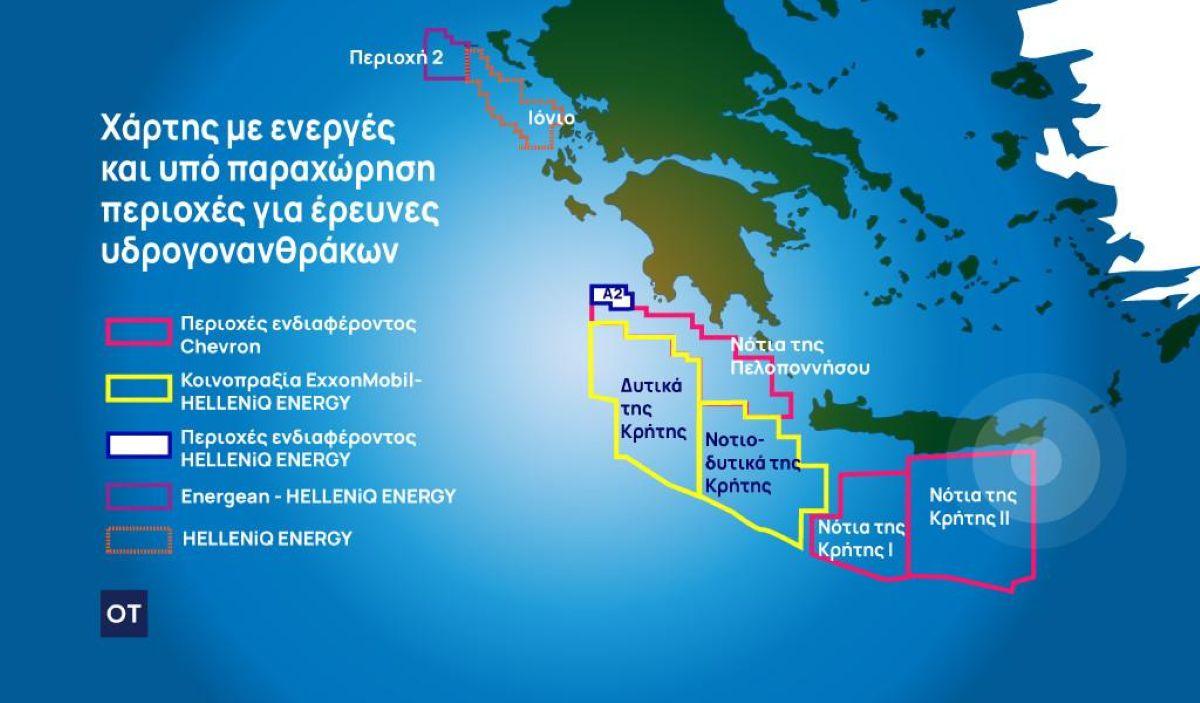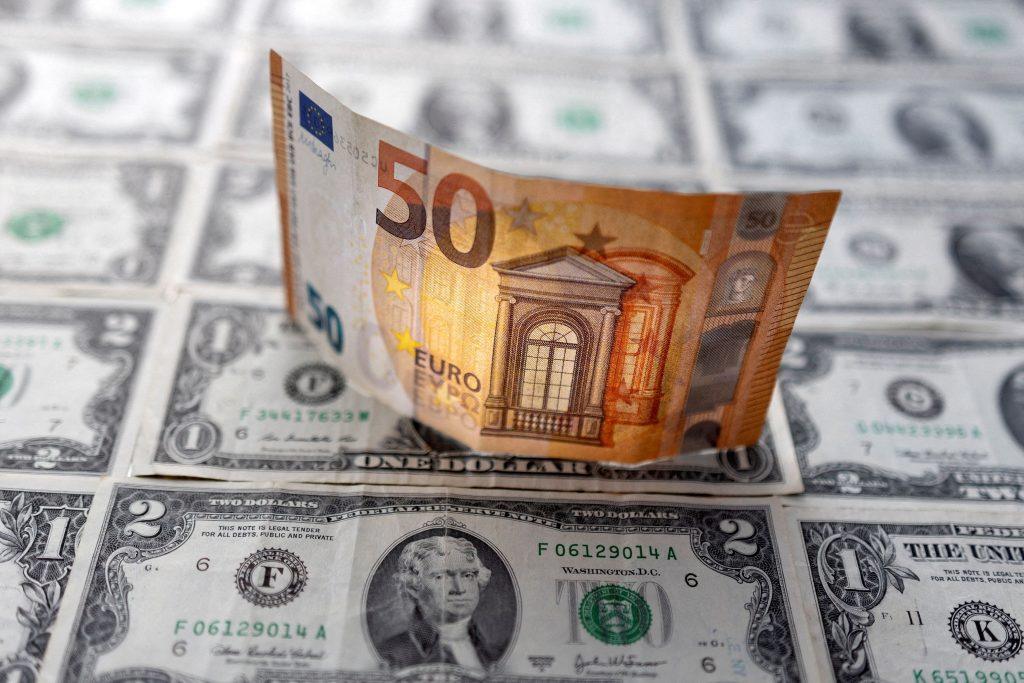Christin Lagarde’s “whatever it takes” sent an upgrade signal, while it also consists a seal of approval for the Greek economy, confirming the European Central Bank’s full support for Greek bonds in the post-PEPP era. Distinguished economists analyze in the journal “NEA” the decision of the ECB, which they characterize as an “umbrella” that reduces the risk of a sharp increase in borrowing costs and supports debt sustainability, but it is also a sign that Greece is likely to gain an investment grade.
The government’s expectation is for Greece to be upgraded and to acquire an investment grade by 2023. And this is because now there is a possibility for the Greek bonds to come out of the “junk” category.
Athanasios Vamvakidis
Global head of foreign exchange strategy of Bank of America
Τhere are now many reasons to be optimistic
The decision was welcomed by the markets. Through the flexible reinvestment of existing shareholdings, the ECB will be able to continue to be a key player in the Greek government debt market. In any case, Greece will join the ECB APP when it is upgraded to the investment level, in about a year. The country, meanwhile, has full market access, at historically low costs, while significant cash reserves and one of the best debt maturity profiles offer reassurance to investors. We would expect Greece to take advantage of the favorable conditions and continue to issue bonds to further improve liquidity and strengthen its economy. After more than 10 years of enormous uncertainty, we see many reasons to be optimistic for the course of the Greek economy. The economy is growing above expectations and we hope that Omicron variant will not affect its course. EU funds combined with structural reforms offer a unique opportunity. We must not forget that the Greek debt remains very high and that only growth can allow Greece to return to pre-crisis levels. Greece has the opportunity through the full support of the European institutions to face the problems of the past and to build a much stronger economy. It is up to Greece to take full advantage of it.
Andrew Kenningham
Chief Europe Economist of Capital Economics
Greece is like to achieve investment grade, maybe by the end of 2024
This is good news for Greece. It is also encouraging that the ECB explicitly states that this is something that applies to bonds issued by the Hellenic Republic. This means that it will stand behind the purchase of Greek government bonds and will ensure that there will be no significant expansion of yields. It also eliminates the risk of a sell-off and facilitates Greece’s access to the capital markets. The decision was made based on two factors. First, the battle for the Greek fiscal situation has now gone down in history. And secondly, Greece has made tremendous progress. It seems likely to me that Greece will be upgraded to an investment level by the end of 2024 (the date the ECB will start reducing bond holdings under the PEPP).
Dimitris Liakos
Economist, former Vice Minister
Colossal task with no room of complacency
The resurgence of inflation and the change in expectations regarding the duration of its intensity affect the attitude of the most important central banks. A key element of the first measures decided is the reduction of quantitative easing programs, while in other cases, e.g. in England and Norway, the first increases in nominal interest rates were recorded. Regarding the attitude of the ECB, it should be emphasized that no increase in interest rates is foreseen in 2022. The weak image of the European economy compared to the US and China, the maintenance of the negative effects of the pandemic, especially after the appearance of the Omicron variant leading to the adoption of restrictive measures, are key reasons for this approach by the ECB. However, the main reason is the significant increase in public debt, which on average is close to 100% of GDP, and the avoidance of rising refinancing costs, which, under certain conditions, could lead to a recurrence of the debt crisis that plagued Europe in the past decade.
In this context, the decision of special reference to Greek bonds is included in order to reduce the risk of questioning the debt sustainability. The exclusion of Greece from the basic quantitative easing program involves the prevention of an appeal before the German Constitutional Court due to the fact that Greece does not have the necessary rating to include its securities in the investment grade. The positive solution that was chosen has two more elements that are worth emphasizing. Firstly, the integration of the crisis management lessons of the last fifteen years by the ECB (mainly by Mrs Lagarde) towards finding common and comprehensive solutions without exceptions and “rendering” the “black sheep” stigma to any member of the eurozone. Secondly, the indirect recognition of the Greek timeless efforts to achieve fiscal balance and the positive effects of the decisions on public debt management taken three years ago. However, there is an important part that belongs to our country and concerns the effort to restore the investment level for Greek bonds. Necessary elements to achieve the goal are the restoration of fiscal stability (which will depend on developments on the pandemic and inflation fronts), the multiplier absorption of European resources in order to achieve higher and more stable growth rates in the long run, the long-term reform issues and the strengthening of bank balance sheets. It is understood that we have a colossal task ahead of us and therefore there is no room for complacency.







![Βούτυρο: Τι δείχνει το χρηματιστήριο τιμών – Γιατί παίρνουν… φωτιά τα κρουασάν [γραφήματα]](https://www.ot.gr/wp-content/uploads/2025/07/kroyasan-1024x683-1-300x300.jpg)





![Δασμοί: Οι εμπορικές συνομιλίες ΕΕ-ΗΠΑ για τους δασμούς στα αυτοκίνητα [γραφήματα]](https://www.ot.gr/wp-content/uploads/2025/07/tofas.jpg)

![Τεχνητή νοημοσύνη: Η ζήτηση ενέργειας αυξάνει τις εκπομπές CO2 [γράφημα]](https://www.ot.gr/wp-content/uploads/2025/02/data-center.jpg)
![Χρυσές λίρες: Πουλάνε μαζικά οι Έλληνες το εξάμηνο του 2025 [γράφημα]](https://www.ot.gr/wp-content/uploads/2025/07/photo_2025-07-04_13-01-06.jpg)











![Βούτυρο: Τι δείχνει το χρηματιστήριο τιμών – Γιατί παίρνουν… φωτιά τα κρουασάν [γραφήματα]](https://www.ot.gr/wp-content/uploads/2025/07/kroyasan-1024x683-1.jpg)


![Εκατομμυριούχοι: Η μεγαλύτερη μετακίνηση πλούτου στην ιστορία το 2025 [γράφημα]](https://www.ot.gr/wp-content/uploads/2024/04/money-2048x1366-1.jpeg)

![Τραμπ: Διοργανώνει σύνοδο κορυφής ΗΠΑ και πέντε αφρικανικών χωρών [γράφημα]](https://www.ot.gr/wp-content/uploads/2025/06/trump-maga-scaled.jpg)




